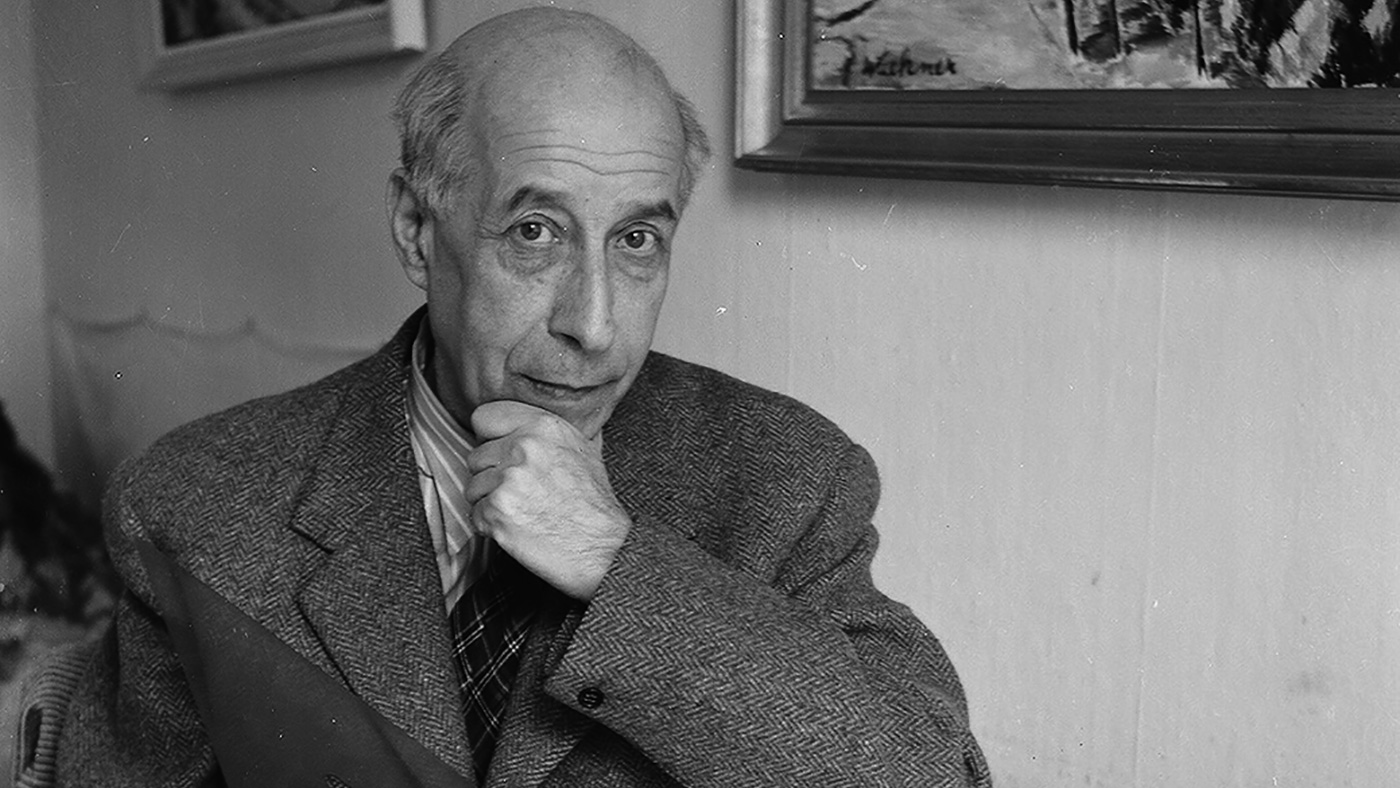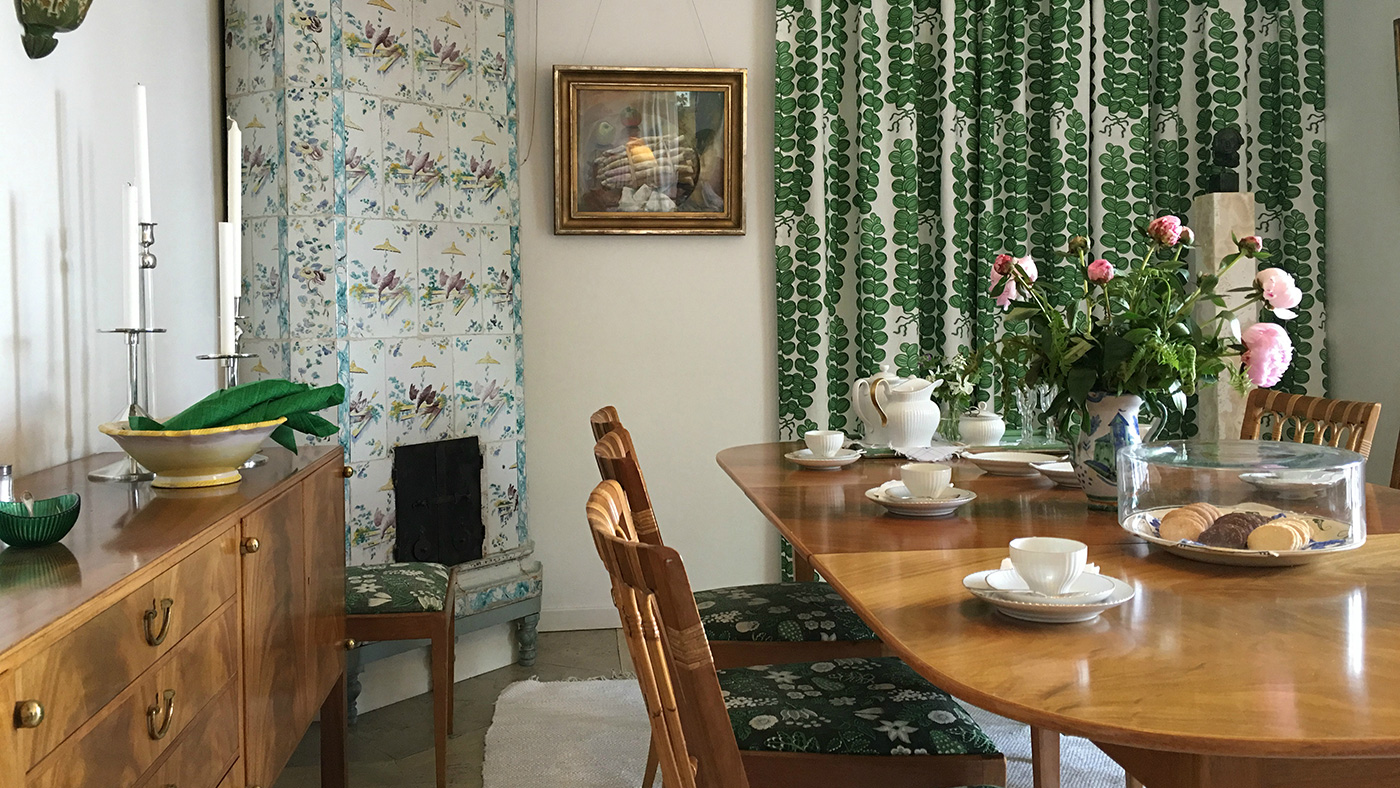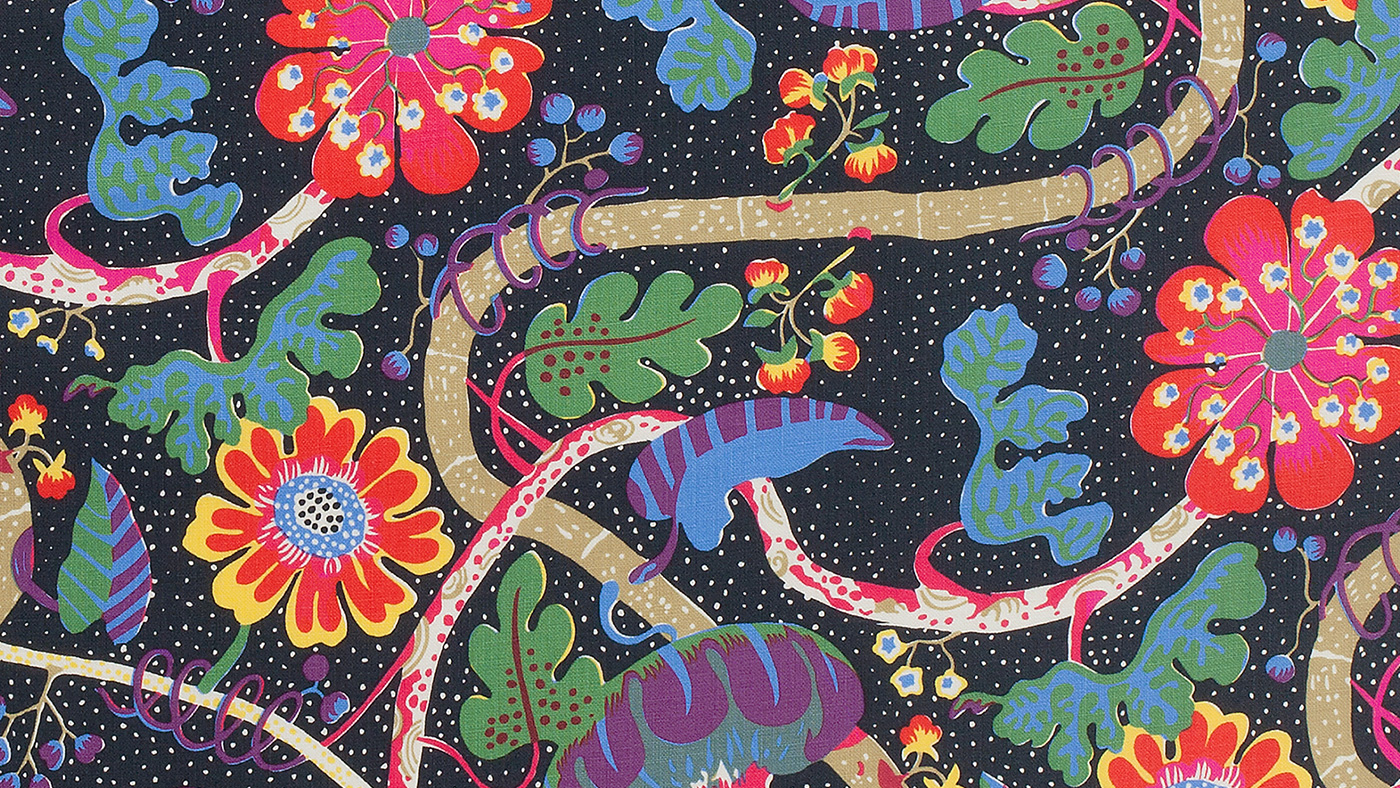Northern light: Josef Frank exhibition opens in London
The pioneering Swedish designer is celebrated in the UK for the first time, with a four-month exhibition at the Fashion and Textile Museum
A free daily email with the biggest news stories of the day – and the best features from TheWeek.com
You are now subscribed
Your newsletter sign-up was successful



This month, London hosts the first-ever UK exhibition dedicated to Josef Frank, one of Sweden's most influential artists.
Born in Austria in 1885, Frank studied architecture at the Vienna University of Technology before fleeing to Stockholm in 1933, during the onset of Nazi occupation. In Sweden, Frank's art found a natural rapport (he later adopted Swedish citizenship) and the designer became a key figure in the country's Modernism movement.
It was shortly after emigrating that Frank met artist Estrid Ericson, founder of interior design store Svenkst Tenn. Theirs was to be a lifelong working relationship, during which the indefatigable designer produced more than 2,000 sketches for pieces of furniture, textile, glassware and metalwork – many of which are still in production today.
The Week
Escape your echo chamber. Get the facts behind the news, plus analysis from multiple perspectives.

Sign up for The Week's Free Newsletters
From our morning news briefing to a weekly Good News Newsletter, get the best of The Week delivered directly to your inbox.
From our morning news briefing to a weekly Good News Newsletter, get the best of The Week delivered directly to your inbox.

The Fashion and Textile Museum's exhibition will focus on these vibrant textiles and pieces of furniture, while also casting a spotlight on Frank's watercolour paintings, a previously unknown side of his talents. Never one to do things by half, Frank produced around 400 watercolours in the latter half of his career, which typically depicted colourful scenes of nature, still life and landscapes.
Though associated with Modernism, Frank made the movement his own in a unique way. His style embraced comfort and colour, with decorative yet functional designs inspired by nature, replete with abstract flowers, butterflies and birds. He had little time for Le Corbusier's mantra that a house should be "a machine for living in", even saying he feared "standardised interiors" would make people "all too uniform".
Frank's work was unashamedly optimistic, despite being created at the height of World War II, and sat in stark contrast to Modernism's clean, minimalist aesthetic.
"The monochromatic surface appears uneasy, while patterns are calming, and the observer is unwillingly influenced by the slow, calm way it is produced." Frank wrote. "The richness of decoration cannot be fathomed so quickly, in contrast to the monochromatic surface, which doesn't invite any further interest and therefore one is immediately finished with it."
A free daily email with the biggest news stories of the day – and the best features from TheWeek.com

The new exhibition has been organised in partnership with Millesgarden, a Stockholm-based museum and sculpture park and the former home of artist Carl Milles, who, in 1951, commissioned Frank and Ericson to design its interior. Josef Frank: Patterns–Furniture–Paintings includes plans, drawings and photographs of these, giving visitors the chance to see Frank's work in situ.
"Josef Frank's textile patterns are a design classic: his brilliant use of colour, sense of scale and surreal organic forms have remained in fashion for over 70 years," said Celia Joicey, head of the Fashion and Textile Museum. "Frank's collaboration with Estrid Ericson at Svenskt Tenn in Stockholm is a fine example of how working in a design partnership can create a stronger individual style."
Josef Frank: Patterns–Furniture–Paintings runs from 28 January–7 May; ftmlondon.org
-
 Secured vs. unsecured loans: how do they differ and which is better?
Secured vs. unsecured loans: how do they differ and which is better?the explainer They are distinguished by the level of risk and the inclusion of collateral
-
 ‘States that set ambitious climate targets are already feeling the tension’
‘States that set ambitious climate targets are already feeling the tension’Instant Opinion Opinion, comment and editorials of the day
-
 Mixing up mixology: The year ahead in cocktail and bar trends
Mixing up mixology: The year ahead in cocktail and bar trendsthe week recommends It’s hojicha vs. matcha, plus a whole lot more